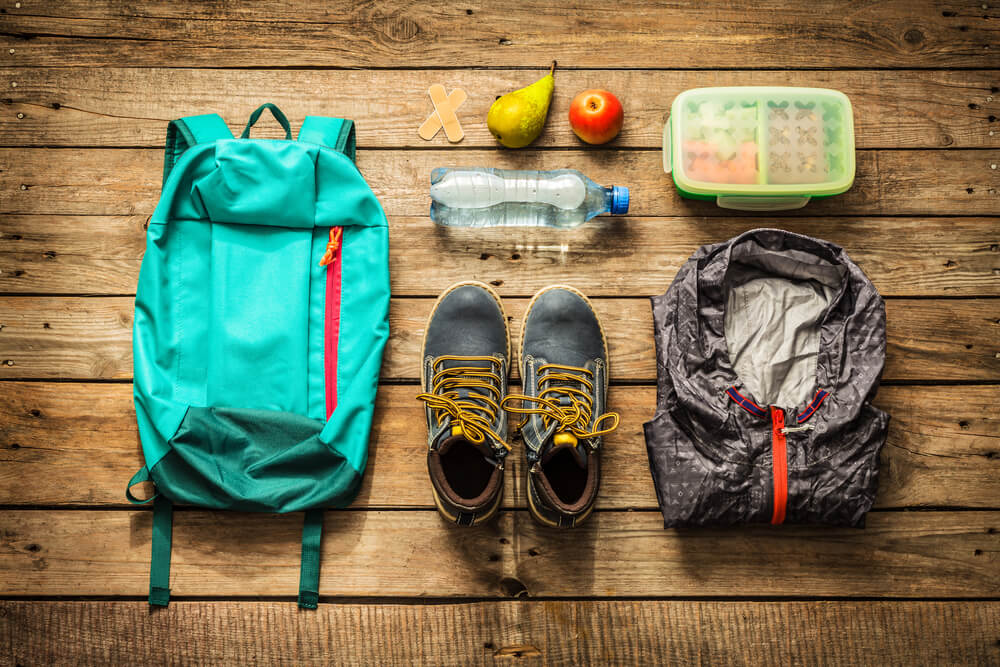1 week to go!
5 days to go!
24 hours to go!
And the countdown begins…
Your child is probably counting down every second to go on his/her very first field trip. It’s fun and exciting for children to miss their mundane classrooms and explore new opportunities, experiences, ideas and skills. The best part about field trips for students is to get hands-on learning and igniting new passions and interests.
Steps were taken for organizing the field trip
Now that your child is all ready to discover a new path of learning, it can be a bit burdensome for the parents to prepare their children for a ‘successful’ field trip.
Out-of-the-class excursions will help your children to learn classroom concepts in the real world and make them more confident for the future. A day away from parents can be rough for both the children and parent, so parents should make sure that their children come home with happy faces.
We bring to you a few things parents should do to mentally and physically prepare your child for the exciting field day!
1. Make it sound ‘super exciting.’
The thumb rule of every trip is to make your children understand what to expect from the field trip. School trips are exciting and intimidating as the child gets ample time to explore and hang out with their friends.
Boost your child’s energy levels by telling about the place and making them feel excited. Also, motivate them to participate in student development activities.
Also, motivate them to ask questions or find answers themselves. Share your experiences as a child and teach them a few tips and tricks.
Tell them what they should do when they feel anxious or nauseous. Ask them to be attentive and maintain appropriate behaviour in a foreign place.
2. Stay prepared a night before the trip
As the day draws closer, make sure you have packed everything from clothes to medicines. You can also stick a small note for any last-minute packing.
Ask your child to help you in packing so that he/she knows where the tablets, money and other essentials are kept in the bag.
Make sure you double-check if any specific clothing like a swimming suit is required during the trip. If possible, then iron all the clothes to avoid last-minute madness.
Don’t go for heavy lunch boxes, pack a simple, lightweight lunch with fruits, sandwiches or parathas.
Your child needs a good night’s sleep to kick off the day. A calm routine a night before the trip will bring a big difference in your child’s attitude the next day.
3. Get in the right clothes
Pack the right clothing considering the weather and types of activities done in the field trip. We would advise you to choose light coloured cotton clothes for hot temperature and dark ones for the cold climate. While in monsoon, a raincoat or umbrella is a must to prevent your child from virals, even for in-school field trips for preschool.
If your child is going on a wilderness field trip, dress him/her in bright coloured clothes. Opt for shirts that are yellow, orange, pink, aqua, etc. With this, your child would be easily spotted among the crowd.
Other than this, an extra pair of clothes is necessary if your child is a bit naughty. Don’t stuff unnecessary things and try to keep the bag lightweight for an easy-peasy day.
4. Encourage your child to ask questions
Educational field trips play a significant role in nurturing and feeding your child’s curiosity as they get a closer insight into the fact. It’s a unique learning experience to visualise, experience and discuss information in a friendly environment. Motivate your child to ask questions and come home with answers backed up with facts.
Your child is exposed to multiple opinions from immature friends who may have a different version of the story altogether. When he/she shares these with you, shower them with questions and hint them to ask their teachers to test its relevance. Children asking more the questions tend to be more comfortable with the environment. Asking questions at a tender age is vital for your child’s development too.
5. Make sure your child is physically ready
Schedule your child to sleep and wake early. This will help him/her to be relaxed and fresh for the one-day trip. Start the day with positive thoughts, light breakfast and some quick dos and don’ts.
It would be great to prepare a checklist to make sure you don’t miss out on anything.
Get, Set, Go!

6. Ask your child to take notes
A small notepad and a pencil box will remind your child to take notes on the trip. A day before the trip, don’t forget to teach your child about the importance of field trips and how your field notes helped you to get good marks when you were a child.
Taking notes is a good habit as it will help to engrain knowledge and act as a souvenir. If it’s allowed, then lend your mobile phone for a day to keep the memories and learnings fresh in mind.
7. Managing cash when traveling alone
Your child should carry a small amount of cash that can be useful during an emergency. This is a great way to teach your child the art of managing money when you’re on a budget.
Give your child an ‘appropriate’ amount of money to buy food or toys just for fun. The main advantages of field trips are to teach survival skills.
Kindly speak to your teacher before lending money to your child. High school students never give too much or too less. Excess cash can risk your child’s safety while giving too little cash can embarrass them.
8. Did you check the school policy?
No! You need to double-check with all the norms set by the school. Speak to the teacher about all the necessary things that the child has to follow during the trip.
Parents need to be attentive and follow every guideline so that the child doesn’t get an unnecessary scolding. Giving gadgets when the school doesn’t allow can hinder your child’s first impression and the mood of the trip.
It’s important to comply with all the guidelines set by the school to minimise delays on a special day like this!
9. Ensure your child knows his/her contact number
It would be great if your child memorises your contact number or simply stick a note with the necessary details. This is to make sure that the teacher-in-charge knows where to reach you in case of any problem.
If possible, you can also ask for your teacher’s number to keep track of your child’s movements.
Did you narrate the story when you got lost during a student development program organised by your school?
10. Inform the teacher about your child’s circumstances
If your child has special medical circumstances, then make sure to inform the respective teacher. This can help if you want to give a quick reminder about his/her medication timings.
This will help the teacher to be vigilant and keep your child safe. Inform the teacher about your child’s medications and keep a follow-up during the day.
Make all your child’s medicines easily accessible in different colour boxes with a small sticky note on the top. Even if that’s not the case, don’t forget to pack some necessary medicines.
You’re not doing this to alienate your child; it’s just to make sure that he/she returns safe and sound.
Frequent field visits add a new, real-life dimension to the textbook curriculum. Learning bank interest rates or historical events in a classroom can never be as exciting as visiting a garden to understand the process of photosynthesis. Don’t you think the same?
Nalanda International School is one of the best schools in Vadodara that upholds strong values, morals, principles, ideologies and ethics. All programmes are designed to develop the inquiring and inquisitive mind for the sciences, the passion and heart for the arts and the zeal, enthusiasm and physique for sports.
We strongly believe that every child should be allowed to experience life and lessons beyond the classroom walls as a regular part of growing up. At Nalanda, your children will experience at least four field trips every year, which means that from nursery to class 12, students have visited 50 places of academic, cultural or intellectual interest in their school life. Be a part of this ICSE school in Vadodara.


